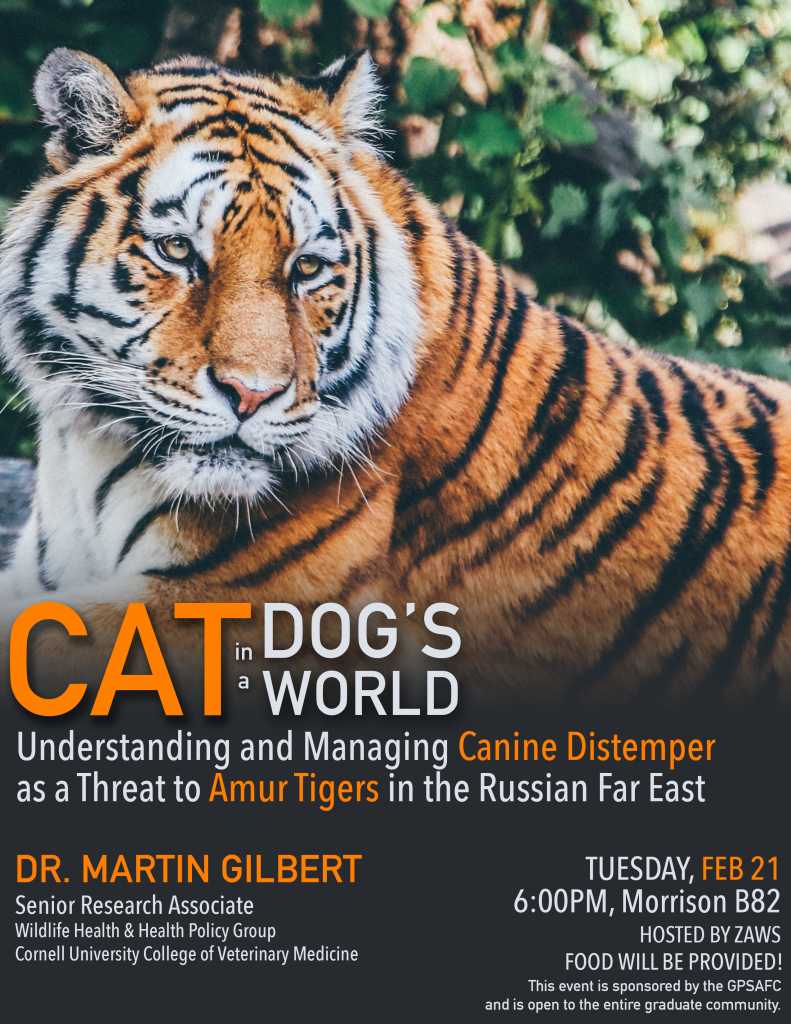The CUCVM student community would like to extend a warm welcome to a number of phenomenal new hires in the wildlife health realm. Recently, the CVM has brought-on seven faculty and staff, with the goal of growing Wildlife Health / One Health / Planetary Health programs at a critical time in the College’s strategic planning. The group strives to develop and apply science-based, multidisciplinary approaches to conservation, including through a focus on Planetary Health. In short, Planetary Health is a field focused on improving our understanding and applying appropriate metrics regarding the public health impacts of anthropogenic environmental change, so as to be able to inform decision-making in the land-use planning, environmental conservation, and public health policy realms. Planetary Health also provides a lens for the new CVM-led Master of Public Health program, with its first class starting in September of 2017. There have already been numerous excellent discussions and many new initiatives are underway, not only within the CVM, but throughout the University. Hopefully, new collaborative efforts will arise and continue to foster future discussions and cross-disciplinary action!
We look forward to the incredible things that will come from these new appointments, not only for Wildlife Health and Environmental Conservation at our University, but for conservation initiatives worldwide.
Please join me in welcoming:
Dr. Steven A. Osofsky, Jay Hyman Professor of Wildlife Health & Health Policy
Dr. Martin Gilbert, Senior Research Associate in Wildlife Health
Ms. Helen Lee, Wildlife Health & Health Policy – planning and operations
Ms. Shirley Atkinson, Wildlife Health & Health Policy – Southern Africa, AHEAD Program
Dr. Montira Pongsiri, Planetary Health Alliance Science Policy Advisor
Dr. María Forzán, Senior Research Associate in Wildlife Pathology
Dr. Mani Lejeune, Director of Clinical Parasitology and Senior Extension Associate at the Animal Health Diagnostic Center
ABOUT THE AUTHOR: Zack Dvornicky-Raymond is a current second-year vet student interested in wildlife conservation and One Health, and hopes to pursue a career focused on reproduction and population management in endangered/threatened wild species.


